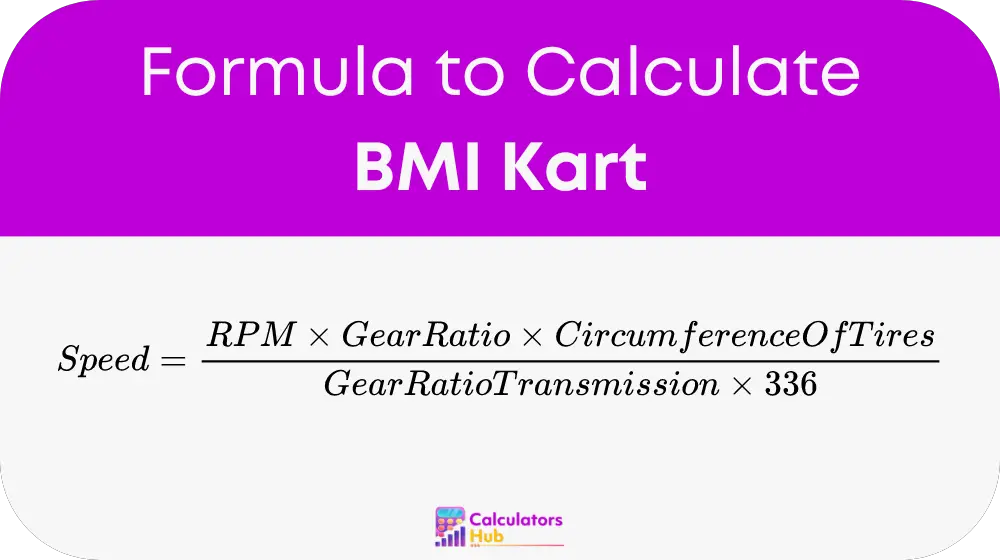Go-kart racing requires precise adjustments to achieve maximum efficiency and speed. The BMI Kart Calculator helps racers and designers by calculating the expected speed of a go-kart under various conditions. It considers factors such as gear ratios, engine RPM, and tire circumference to provide a reliable speed estimate.
Formula of BMI Kart Calculator
To fully utilize the BMI Kart Calculator, it’s crucial to understand the underlying formula:

Where:
- RPM: Engine speed in revolutions per minute.
- Gear Ratio: Final drive ratio (ratio between the engine sprocket and the rear sprocket).
- Circumference of Rear Tires: Circumference of the rear tires in inches.
- Gear Ratio in Transmission: Gear ratio in the transmission.
This formula allows racers to tweak their setups based on precise mathematical calculations, leading to optimal performance.
Practical Table for Go-Kart Enthusiasts
For ease of use, here’s a practical table that lists common gear ratios, corresponding RPM values, and the resultant speeds:
| Gear Ratio | RPM | Estimated Speed (MPH) |
|---|---|---|
| 3.5 | 6000 | 85 |
| 4.0 | 6000 | 75 |
| 4.5 | 6000 | 67 |
This table enables quick decisions on the track, helping racers adjust according to real-time conditions and outcomes.
Example of BMI Kart Calculator
Imagine you’re preparing your kart for a race with a gear ratio of 4.0, and the engine can rev up to 6000 RPM. Using our calculator, the estimated speed would be approximately 75 MPH, assuming standard tire circumference and transmission ratios. This instant insight allows for rapid adjustments and fine-tuning.
Most Common FAQs
A1: Efficiency varies by track layout and engine power; however, a ratio between 3.5 to 4.5 is commonly used for balance between acceleration and top speed.
A2: Larger tires will increase the circumference, potentially increasing speed at the same RPM and gear ratio.
A3: Regular engine maintenance and tuning are crucial. Adjusting your driving style to stay within the optimal RPM range can also enhance performance.